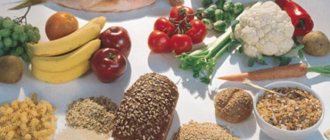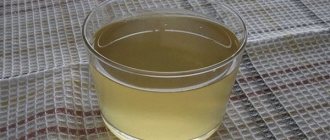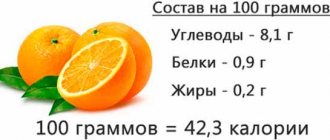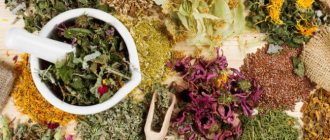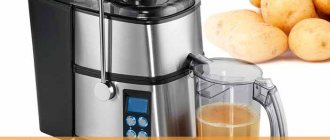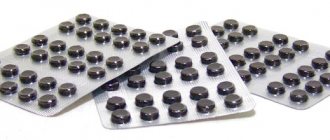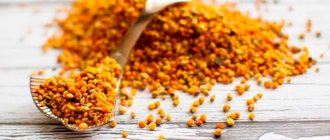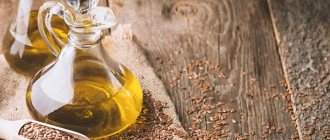Fever, accompanied by nausea or even vomiting, a characteristic nagging pain localized in the upper left part of the abdomen and spreading to the back - all these are symptoms of such an unpleasant problem as pancreatitis. The acute form of the disease makes itself felt by the unexpected appearance of all of the above symptoms, with exacerbations repeating quite often. The essence of this disease is acute inflammation of the pancreas. Treatment in this case must be started immediately.
Along with drug therapy, experts recommend adhering to a non-alcoholic regimen, fasting during periods of exacerbation, and regularly applying cold compresses. One of the most effective folk remedies to combat the problem is considered to be the use of potato juice. It is this method that we will dwell on in more detail.
Chemical composition, microelements and characteristics of potato juice
Thanks to its vitamin and mineral complex, raw potatoes help fight various diseases, including inflammation of the gallbladder and pancreas. Potato juice has a minimum of contraindications and does not cause serious harm to the body.
The vegetable contains vitamins A, C, D, E, H, K, PP and group B, as well as macro- and microelements that have a lot of beneficial properties:
- rubidium – normalizes the digestive process;
- nickel – responsible for regulating enzymatic reactions;
- aluminum – stimulates the regeneration of the skin, participates in the processes of bone tissue formation and digestion;
- lithium – strengthens the nervous system;
- vanadium – participates in carbohydrate metabolism;
- cobalt – normalizes the functioning of the digestive, circulatory and nervous systems;
- boron – stimulates cell growth;
- molybdenum – activates the body’s absorption of vitamin C;
- fluoride – helps strengthen bone tissue, as well as nails and hair;
- selenium – has an antioxidant effect;
- chromium – strengthens bones, normalizes blood pressure;
- copper – stimulates tissue formation, provides immune protection, normalizes digestion and hematopoiesis;
- sulfur – improves immunity;
- iodine – has a positive effect on the functioning of all organs of the body;
- zinc – promotes wound healing, improves skin condition;
- iron – regulates the level of hemoglobin in the blood and the process of oxygen absorption;
- chlorine – stimulates digestive and metabolic processes;
- phosphorus – promotes bone formation and metabolism;
- potassium – regulates the functioning of the kidneys and liver, strengthens the heart muscle;
- sodium – stimulates the metabolic process;
- magnesium – activates tissue formation;
- calcium – strengthens the nervous system and bone tissue.
Calorie content, BJU and nutritional value of potato juice
The energy value of 100 g of product is 77 kcal, it contains:
- proteins – 2 g;
- fats – 0.3 g;
- carbohydrates – 20 g.
Chronic pancreatitis (CP)
Chronic pancreatitis (CP) is a serious disease that can negatively affect the quality of life and even lead to life-threatening long-term complications. In addition to pain, exocrine pancreatic insufficiency can lead to malnutrition (this applies to patients who tend to neglect nutritional recommendations). Late-term complications include diabetes mellitus and pancreatic cancer.
Chronic pancreatitis (CP)
Attention!
The information on the site does not constitute a medical diagnosis or a guide to action and
is intended for informational purposes only.
What vitamins and beneficial properties are present in potato juice?
Potato juice is enriched with proteins, fiber, and organic acids. It also contains a small amount of fat.
For the whole body
Consumption of potato juice helps normalize water-salt balance, metabolic processes and eliminate toxins from the body.
The product has the following properties:
- antiseptic;
- painkillers;
- cleansing;
- laxatives and diuretics;
- anti-inflammatory;
- general strengthening.
For the gastrointestinal tract
Potato juice stimulates peristalsis, improving intestinal function. In addition, the product maintains a normal level of stomach acidity, eliminates heartburn and prevents constipation.
The healthfulness of a common vegetable
Since ancient times, the medicinal qualities of potato drink have been familiar to people. Healing is determined by the content of the elements:
- vitamins B, C, PP, E;
- 14 amino acids;
- Calcium;
- Magnesium;
- 30 useful microelements;
- Phosphorus;
- folic acid;
- sodium;
- chlorine;
- iron.
In addition, potatoes contain easily digestible carbohydrates, which have no analogues and cannot be achieved industrially. Thanks to this set, potato juice has a healing effect on the body:
- painkillers;
- anti-inflammatory;
- antispasmodic;
- regenerating;
- wound healing;
- antimicrobial;
- diuretic;
- laxative;
- restorative.
The invaluable medicinal properties of potato juice have been proven to alleviate the condition of patients with many manifestations of diseases associated not only with the gastrointestinal tract. Among these properties:
- treatment of gastritis, ulcers, inflammatory processes;
- relief from heartburn;
- reduction of sugar levels;
- stimulation of intestinal function;
- relief of the condition due to intoxication;
- relief from headaches;
- decreased blood pressure;
- diuretic effect;
- has a beneficial effect on the pancreas.
If there is at least one disease, pancreatitis or cholecystitis, then the first recommendation from doctors, without which there will be no success in drug therapy, is a special diet. It includes the use of vegetable drinks, among which potato juice is invariably present.
How does potato juice affect the gastrointestinal tract and pancreas?
The juice of the tubers has a beneficial effect on the digestive organs, suppressing the active reproduction of enzymes and acid.
Important! It is unacceptable to consume stale juice, as well as juice obtained from green potatoes. In both cases, there is a high risk of poisoning by toxic substances.
In addition, the product has an analgesic effect for pancreatitis and cholecystitis, heals wounds for gastritis and ulcers with high acidity. The drink regulates blood glucose levels and removes excess fluid, which helps reduce swelling of the pancreas. It also relieves inflammation and envelops the pancreas, stopping the production of enzymes that have a negative effect on its mucosa and increase pain.
In case of pathology of the biliary system (pancreatitis, cholelithiasis, cholecystitis), the juice eliminates spasms and normalizes the outflow of secretions.
Method of use
Potato juice has a beneficial effect on the entire digestive system. In case of pancreatitis, it slows down the production of enzymes, thereby significantly improving the condition of the gland.
The juice envelops the lining of the gastrointestinal tract, eliminates spasms, relieves pain, relieves swelling by removing fluid. Often at this time cholecystitis worsens, the pain of which can also be dulled by a potato drink. To benefit fully from potatoes, you must follow the rules:
- All usefulness will disappear upon contact with oxygen in 10 minutes. The juice should be prepared immediately before taking it.
- Juice is treated in courses: from 10 to 14 days, then a break of 7–10 days. Start drinking with small doses to avoid stomach discomfort. The daily dose is within 150–200 ml before meals.
- First daily dose in the morning on an empty stomach.
- Potatoes for pancreatitis are pinkish-red varieties.
Juice therapy should be carried out in the summer - autumn period, while the potatoes are young and have not formed harmful substances in their structure.
You can add carrot juice to improve the taste. You cannot add salt to potato juice. Potato drink does not combine well with animal proteins for digestion. During the course, you should give up fish and meat, replacing them with low-fat fermented milk products.
How to properly prepare and use as an aid in the treatment of pancreatitis and cholecystitis
To obtain the maximum effect, it is important to drink the drink immediately after preparation (within 5 minutes), preventing it from oxidizing upon contact with air. Potato juice is obtained using one of the following devices:
- coarse grater;
- juicer;
- meat grinder
The chopped vegetable is squeezed out using gauze.
How and when to take
When treating, it is important to follow the basic principles:
- drink the drink no later than 2 hours before meals;
- frequency of use – 2 times a day, 150 ml;
- do not add sugar and salt.
Important! The ideal time for a course of treatment is from August to November, at which time the vegetable has not yet had time to accumulate toxic substances.
During the course of therapy, fish and meat dishes are excluded from the diet and at the same time the consumption of fermented milk products is increased. The treatment regimen with potato juice is as follows:
- for pancreatitis, gastritis, cholecystitis and heartburn - 1 glass every morning;
- for stomach ulcers - 3 times a day before meals, start with 1 tsp, gradually increasing the dosage, but not exceeding 1 glass;
- high blood pressure – 2 times a day, ½ cup.
There are several options for taking potato juice with a course duration of 3 weeks:
- 4 times a day, 50 ml;
- 2 times a day, 100 ml;
- ½ glass in the morning while simultaneously taking a warm decoction of herbs: rose hips, oregano, St. John's wort, mint, etc.;
- 100 ml with an interval of 2 hours.
Potato and carrot juice for pancreas
To enhance the effect, drinks: carrot and potato are mixed in equal proportions and taken before meals. Afterwards, take a horizontal position for 30 minutes.
Other
Potato juice goes well with kefir. In this case, first take the prepared juice, and after 5 minutes wash it down with kefir. Treatment with such a cocktail is permissible for no more than 2 weeks, after which a break of at least 10 days is required.
Important! The maximum permissible number of treatment courses with potato-carrot juice is 4.
Recommended by doctors. Flaxseed jelly
Pancreatitis: first aid
“...Have you tried flax seed jelly yet? If you have pancreatitis, be sure to prepare it! There will be no immediate therapeutic effect - the full course sometimes lasts up to six months, but a noticeable improvement in digestion will occur within 2-3 weeks. Treatment should begin after the disease activity has decreased with small amounts - 1/4 cup. When stable remission occurs, you can also use the seeds in their natural form as an additive to cereals, cocktails, salads, etc.
Before preparing flaxseed jelly, grind the seeds to flour (immediately before brewing!), pour 2 teaspoons of powder into 200 ml of boiling water and brew, stirring over low heat for 10 minutes. Then cool and strain. Take 2 tbsp. spoons half an hour before meals in the morning, lunch and evening.
After a week, you can increase the amount of jelly you drink to 1/2 cup at a time. You will notice that all the unpleasant symptoms of inflammation will go away, the intestines will work like clockwork, and if you had heartburn or bitterness in your mouth, you will forget about them. This is what it is, linseed jelly!”
Pancreatic pain attack
Treatment of pancreatitis with flax seeds is recommended by doctors , its effectiveness has been proven by numerous scientific studies. An important quality of the seeds is a large amount of easily digestible vegetable protein, a valuable building material for the regeneration of damaged tissues. They are rich in B vitamins, essential for the proper functioning of the digestive organs, omega-3 polyunsaturated fatty acids and water-soluble fiber.
When it swells, it forms plant mucus - bassorin , which, when it enters the intestines, envelops its walls, providing protection from irritating foods. Mucus is able to absorb toxins, performs a bactericidal function, and has a healing effect. Soluble seed fiber stimulates intestinal motility, eliminating flatulence and colic, reducing the risk of constipation, and dulls the feeling of hunger.
Omega-3 and omega-6 fatty acids contribute to the rapid relief of the inflammatory process and the restoration of damaged tissues. Linolenic acid (omega-3) normalizes fat metabolism, so the use of flax seed prevents heart and vascular diseases, lowers the level of “bad” cholesterol and protects against thrombosis, heart attack and stroke.
- It is not recommended to use this remedy during pregnancy and lactation, during exacerbation of cholecystitis, cholelithiasis, hepatitis, liver cirrhosis, or bleeding disorders.
- Flax preparations should be used in short courses and not exceed the daily dosage: 2 weeks every 2 weeks, dose - no more than 2 tablespoons.
Recommendations for proper intake of potato juice
When treating, it is important to adhere to several rules:
- do not take the juice later than 15 minutes after preparation, since the elements included in its composition have time to oxidize and acquire harmful properties during this time;
- For cooking, it is best to use young potato tubers;
- do not try to diversify the specific taste of the drink by adding various spices and herbs, otherwise serious harm will be caused to the gall bladder and pancreas;
- If during treatment you experience indigestion, it is worth reviewing your diet, temporarily excluding foods high in protein and carbohydrates.
How to cook
Preparing potato juice is very simple. There are several methods, each has found its application and is still used by housewives today.
- Using a grater is a simple and straightforward method. Rub the potato tubers on a coarse grater, place the contents in cheesecloth and squeeze out the juice.
- Using a juicer. If your household has such a device, feel free to squeeze out the drink using it.
- Using a meat grinder, skip 2-3 large potato tubers and strain the resulting juice.
Reviews from doctors
A survey conducted among specialists shows that drinking potato juice for cholecystitis and pancreatitis gives positive results and helps improve the condition of patients. The only condition is the combination of treatment with a folk remedy and the use of medications, as well as strict adherence to the juice intake regimen.
Veronika Ivanovna, 56 years old: “I have been periodically treating myself with potato juice for about 15 years. It helps with exacerbation of gastritis and pancreatitis. The main thing in this matter is to consume the juice fresh, otherwise it will only cause harm.”
Vladimir, 28 years old: “I was treated for pancreatitis with many things, but the best way to alleviate the condition is regular potato juice. The good thing about this tool is that it is always at hand. True, the potatoes must be natural and of high quality.”
